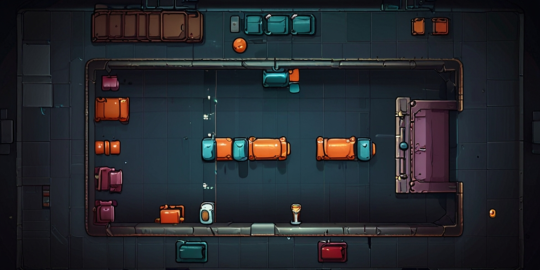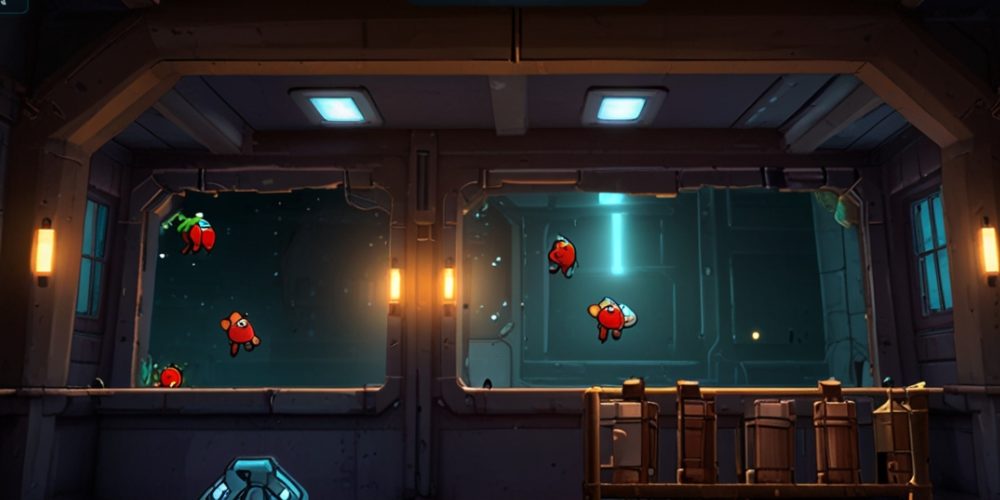
It all started one evening when a few friends invited me to join them for a gaming session. They were raving about this game called “Among Us.” As someone who always enjoyed multiplayer games but had never tried this one, I was intrigued. The concept of social deduction, where players need to figure out who is the imposter, was completely new to me. Little did I know, I was about to immerse myself in a world full of deception, strategy, and a little bit of chaos.
Understanding My Role
The first time I joined a lobby, I was cast as a crewmate. Initially, I felt a sense of relief. My job was simple - complete tasks and help find the imposter. But it quickly became apparent that the real fun lay in the tension of suspicion and betrayal. I learned early on that even as a crewmate, I needed to be observant, keeping an eye on everyone’s movements, as well as my own.
Learning The Mechanics
As I began to play more frequently, I familiarized myself with the game's mechanics. Tasks came in various forms: some involved simple clicking, while others required a bit of skill. I soon realized task completion was crucial, but what really caught my attention was the emergency meeting button. This feature allowed players to call for discussions at any time, and that’s where the true brain games began.
Mastering the Art of Deception
Eventually, I found myself in the role of the imposter for the first time. This marked a monumental shift in my approach. Suddenly, I was tasked with deceiving my friends while simultaneously blending in. I soon discovered that the best strategy was to act like a crewmate, completing fake tasks while creating alibis for myself. I learned quickly that too much suspicious activity would lead to immediate scrutiny.

Observing Others
Throughout my play sessions, I became acutely aware of others' behaviors. One thing I found intriguing was how some players would form small groups, creating safety in numbers. While it often worked, I learned to adapt my strategies depending on the dynamics of the lobby. If I noticed a specific player was particularly skilled at deception or deduction, I’d shift my focus to them.
Developing Communication Skills
Communication was essential in Among Us. During meetings, the chats often turned chaotic. Players would argue, defend themselves, and ultimately try to persuade others based on limited evidence. I realized that using logical reasoning was vital. Crafting my arguments carefully and presenting any found evidence in a calm manner worked in my favor.
Identifying Behavioral Patterns
Over time, I started to identify behavioral patterns among players. You could spot the habitual liars - the ones who would immediately jump to accuse others. On the other hand, some would remain overly quiet, which often raised red flags as well. I trained myself to recognize these cues. Watching how players reacted when someone was accused became my secret weapon.

Building Trust
As I honed my skills, I learned the importance of building trust within my team. When I played as a crewmate, I attempted to establish a rapport with others before suspicion could arise. Little things like following someone to tasks or communicating my whereabouts contributed to a sense of reliability. I found that players were much less likely to vote me out if they felt they could trust me.
Utilizing the Map
The game’s maps proved to be an essential aspect of strategy. Each layout had specific areas where imposters could hide, and crewmates could complete tasks. I quickly learned the importance of having knowledge of the map and using it to my advantage. For example, quickly fleeing through a vent might be the deciding factor between victory and defeat if I found myself in a tricky situation.
Lurking in the Shadows
Being an imposter meant that sometimes you had to embrace the darkness. I found it effective to lurk in shadows, waiting for the right moment to strike. This often meant isolating a player before making my move. I discovered that timing was everything, and choosing to eliminate the right target could sow distrust among the others.
Implementing Sabotage
One of the most thrilling aspects of playing as an imposter was the ability to sabotage tasks. Whether it was cutting the lights or causing reactor meltdowns, these actions disrupted crewmates and created chaos. I often manipulated situations to my advantage, causing distractions while I carried out my plan. I learned that sometimes you must be the architect of confusion to succeed.

Resistance to Accusations
As an imposter, I needed a strong defense against accusations. I found myself developing an instinct for how to respond when attacked. The key was to remain calm, counter-argue convincingly, and shift suspicion back to others. This required a fine balance of assertiveness and gentle persuasion, which often determined whether I would be ejected into space or continue my mission.
Analyzing Voting Patterns
As games progressed, I dove deeper into analyzing voting patterns. I discovered that certain players tended to stick together when voting. Remaining aware of group dynamics allowed me to infiltrate those groups or create division. Watching how players voted could also reveal alliances, which was critical for planning my next moves.
Coping with Imposter Syndrome
Funnily enough, playing the imposter often caused me to experience something akin to imposter syndrome. I’d find myself second-guessing my decisions and tactics, particularly when facing a knowledgeable group. This internal conflict made the experience even more thrilling; navigating my feelings while trying to convince others of my innocence was a rollercoaster ride.
Formulating Endgame Strategies
As I honed my skills, I started to think several steps ahead. I began to formulate endgame strategies, determining how to make the most impactful moves right before meetings. For instance, if there were three remaining players and I was one of them, it became essential to isolate one player without arousing suspicion, ensuring my chance of winning dramatically increased.
Embracing the Social Aspect
In the grand scheme of things, what made Among Us a standout game was the social experience. I embraced the fun of interacting with friends, sharing laughter, and suspicions over voice chat or text. The game transcended just being a challenge of deduction; it became a storytelling experience, filled with memorable moments that brought people together, even across distances.